Shape Recognition Easy Math Worksheets for Ages 4-8
20 filtered results
-
From - To
Welcome to our Shape Recognition Easy Math Worksheets, designed for children aged 4-8. These engaging resources help young learners develop essential geometry skills through fun and interactive activities. Our worksheets introduce various shapes, enabling kids to identify, compare, and classify them. Each worksheet features playful visuals and simple instructions, fostering a love for math while enhancing cognitive development. Perfect for both classroom and at-home learning, these worksheets encourage hands-on practice and critical thinking, ensuring a solid foundation in early mathematics. Explore our collection today and watch your child confidently recognize shapes, setting them on the path to future learning success!
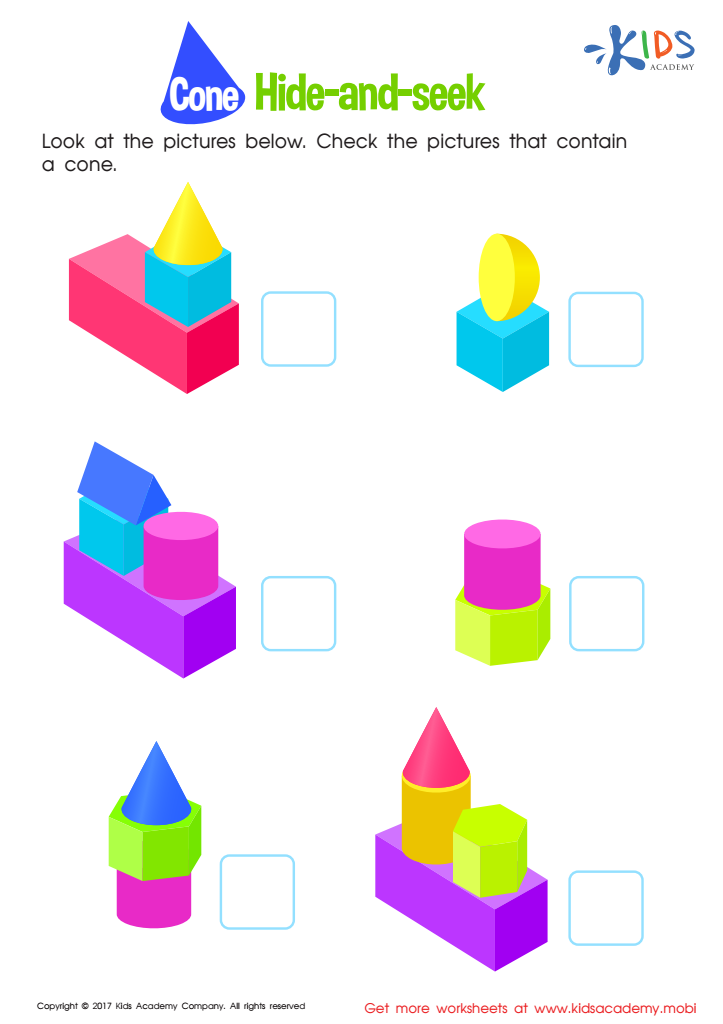

Cone Hide-and-Seek Worksheet
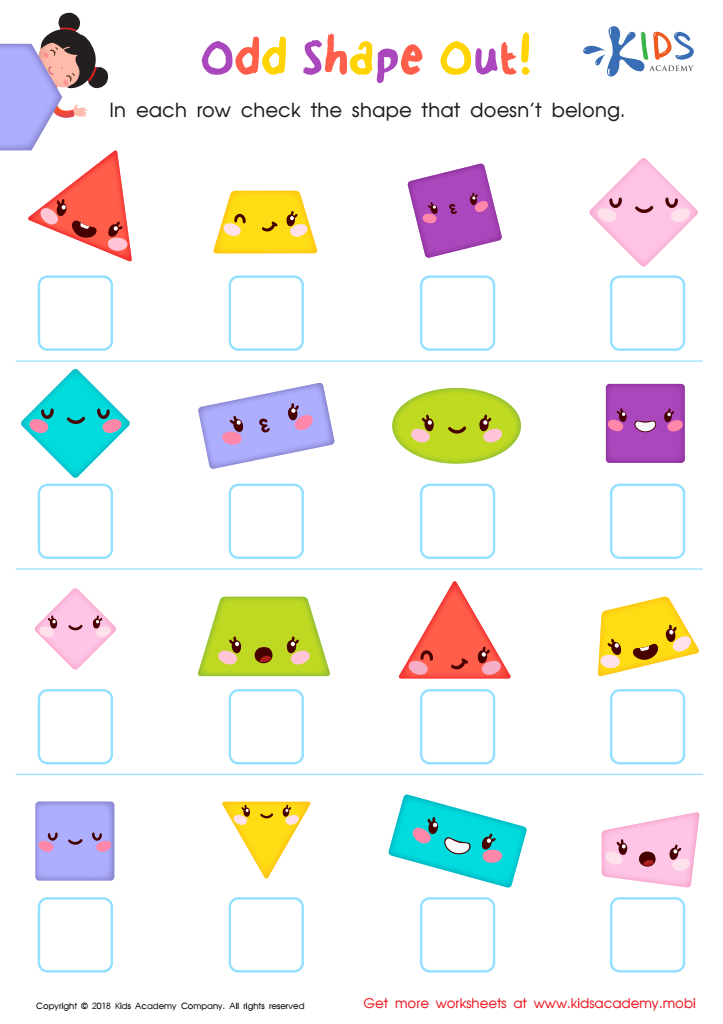

Odd Shape Out Worksheet for Grade 3
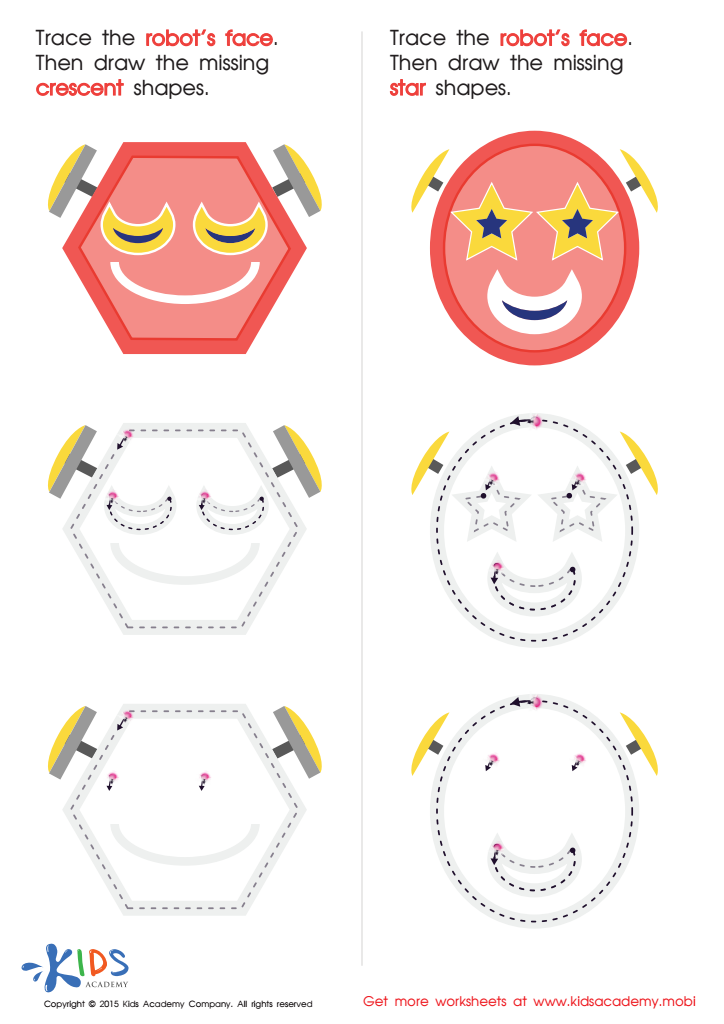

Composing a Robot's Face of Crescents And Stars Worksheet
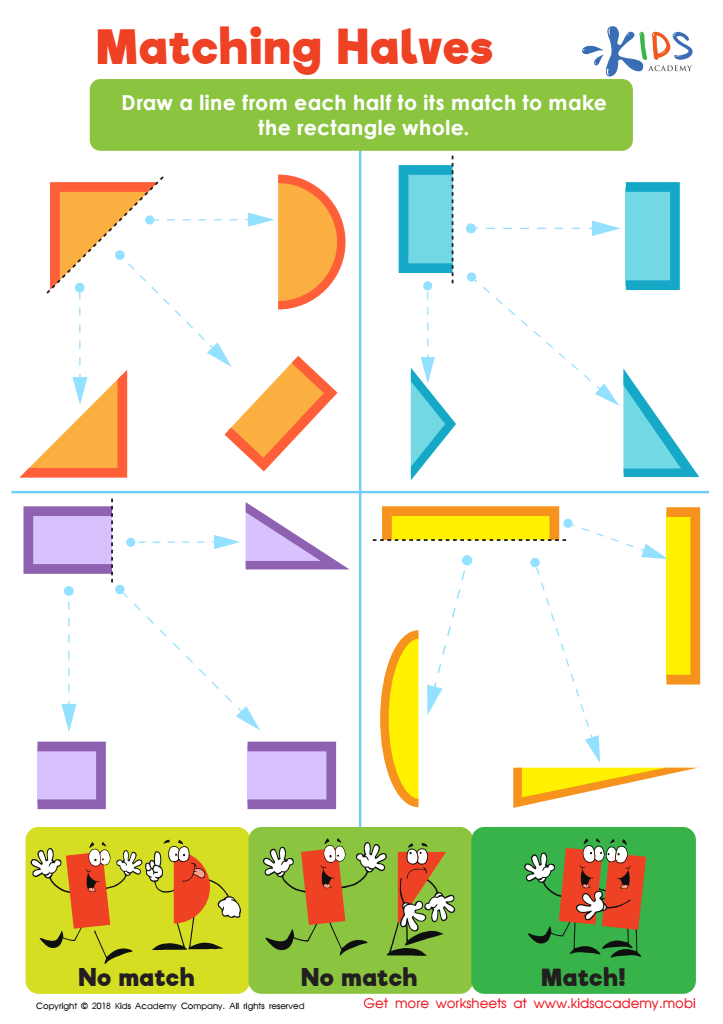

Matching Halves Worksheet
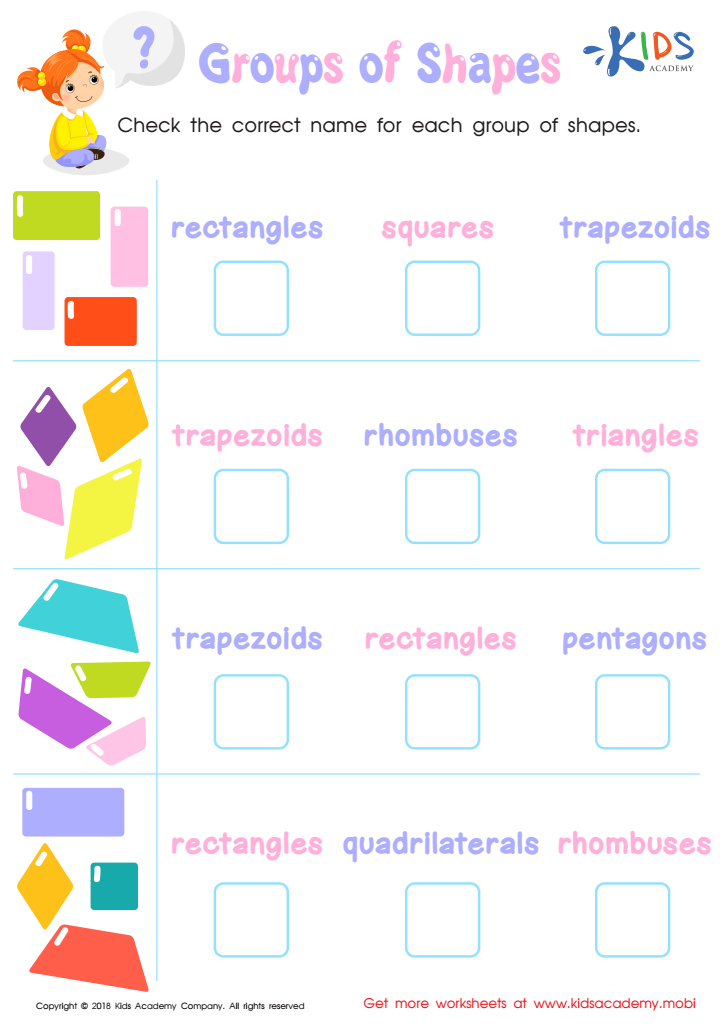

Groups of Shapes Worksheet


Faces of 3D Shapes Worksheet
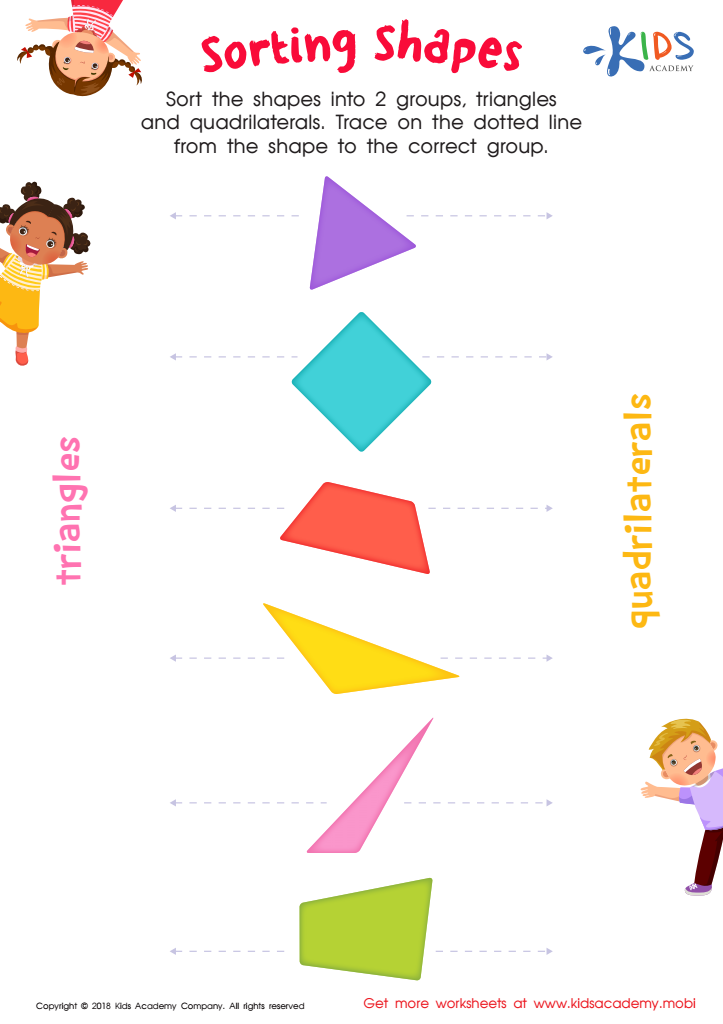

Sorting Shapes Worksheet
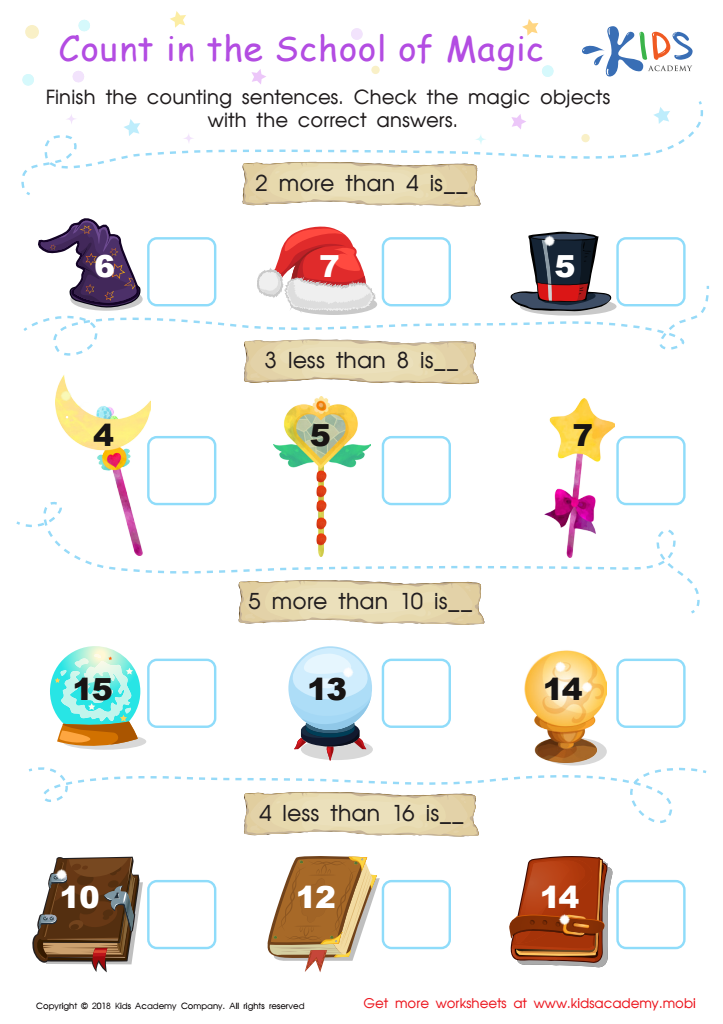

Count in the School of Magic Worksheet
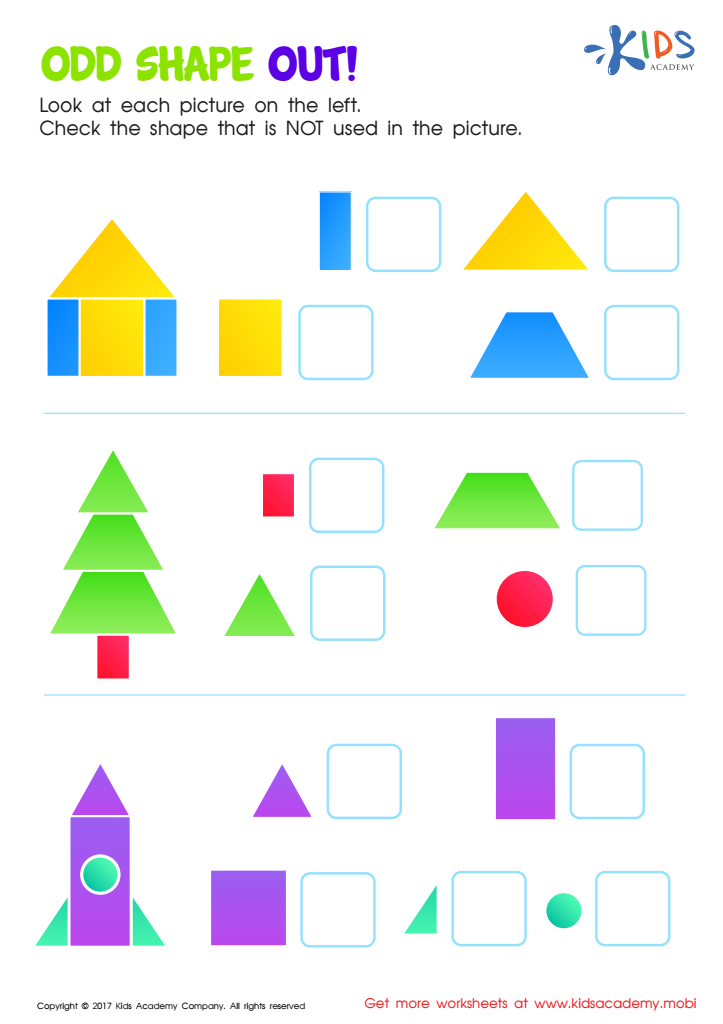

Odd Shape Out Worksheet for Grade 1
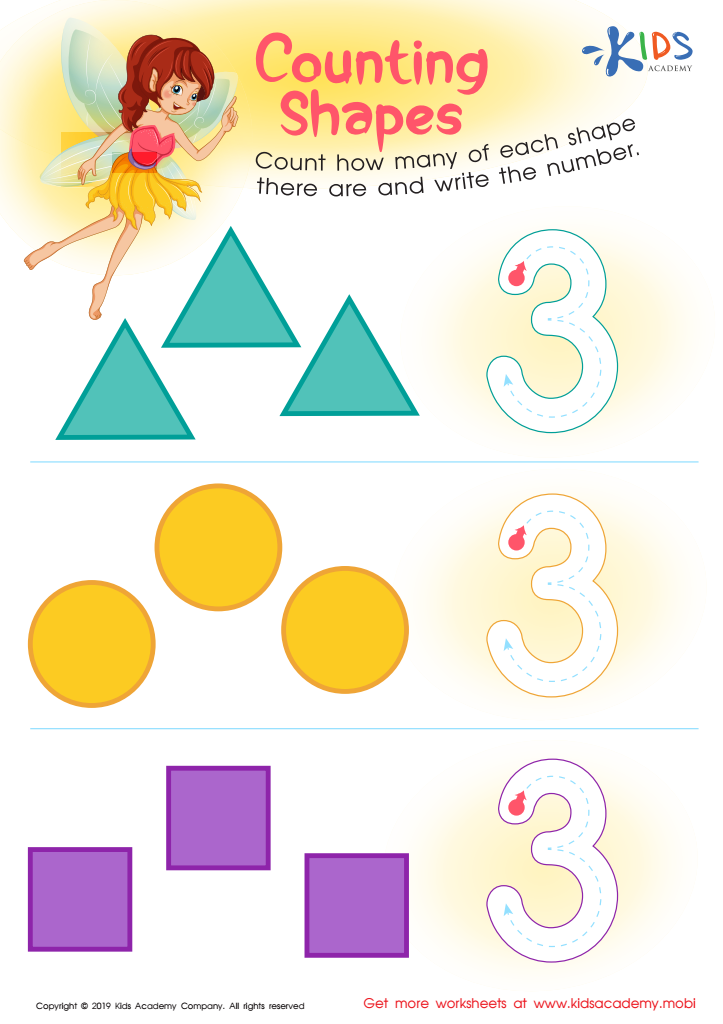

Counting Shapes Worksheet
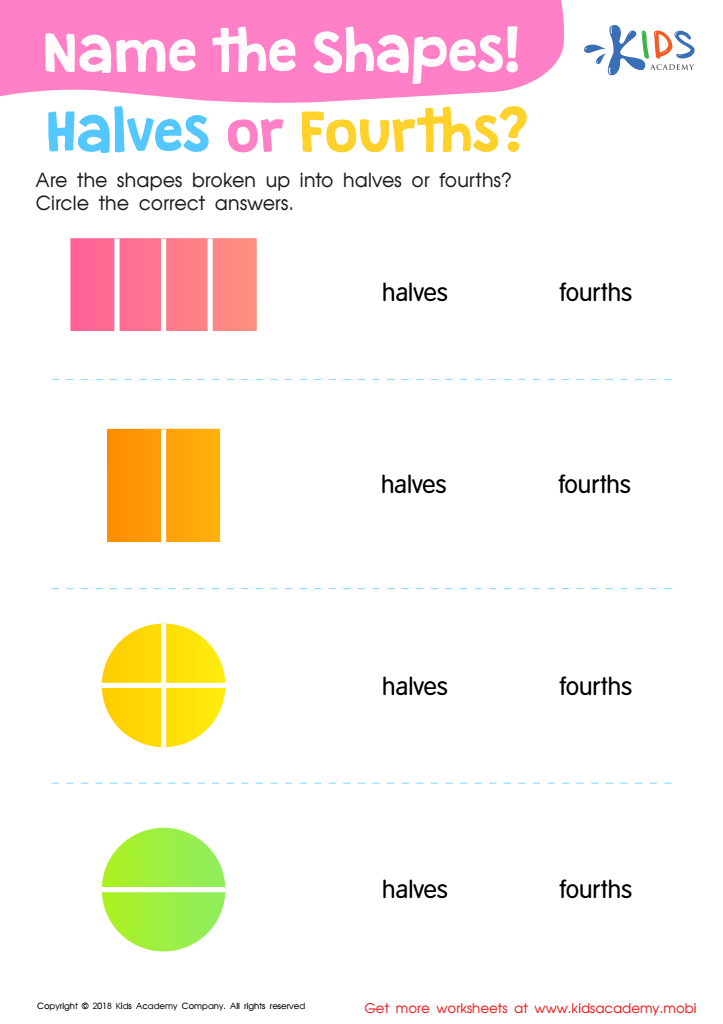

Name the Shapes Halves or Fourths? Worksheet


Color the Shapes Worksheet
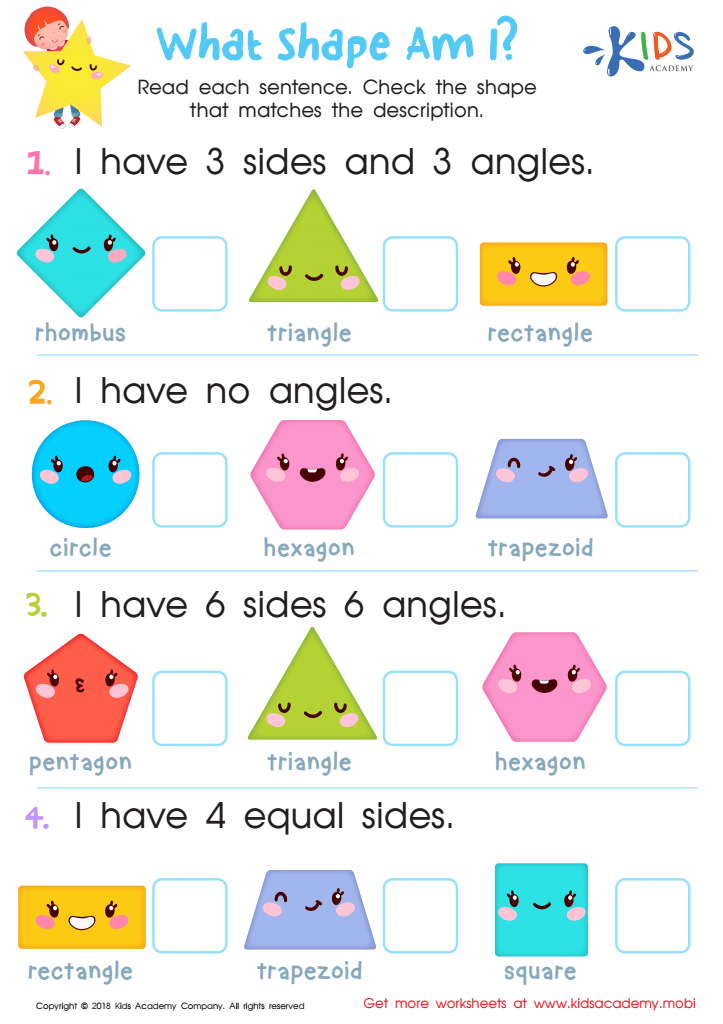

What Shape Am I? Worksheet
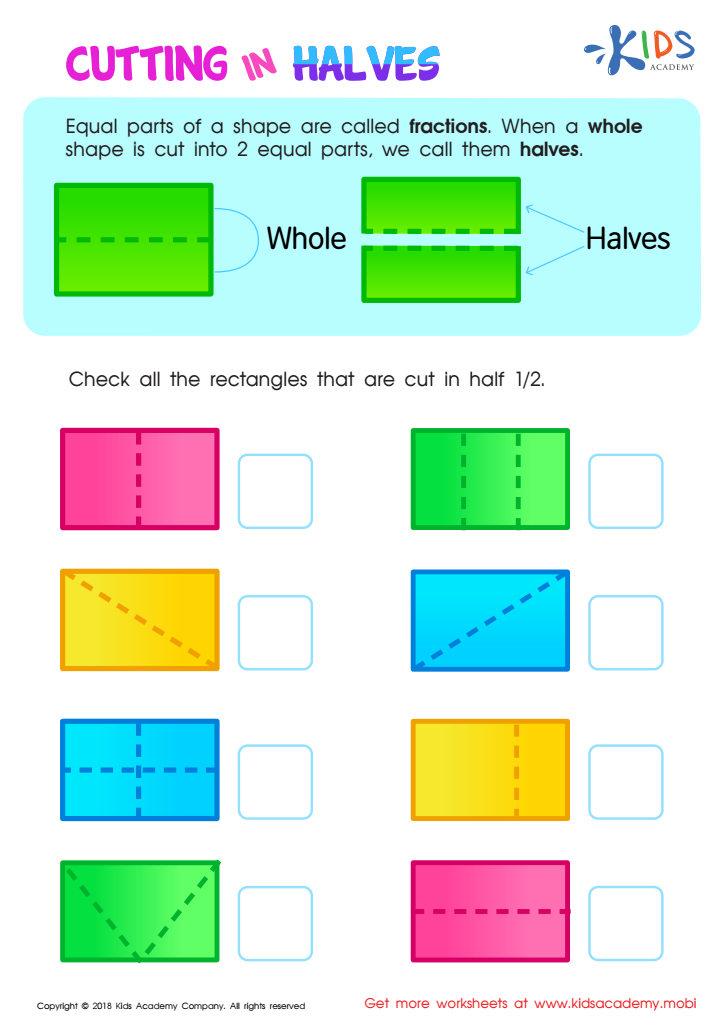

Cutting in Halves Worksheet
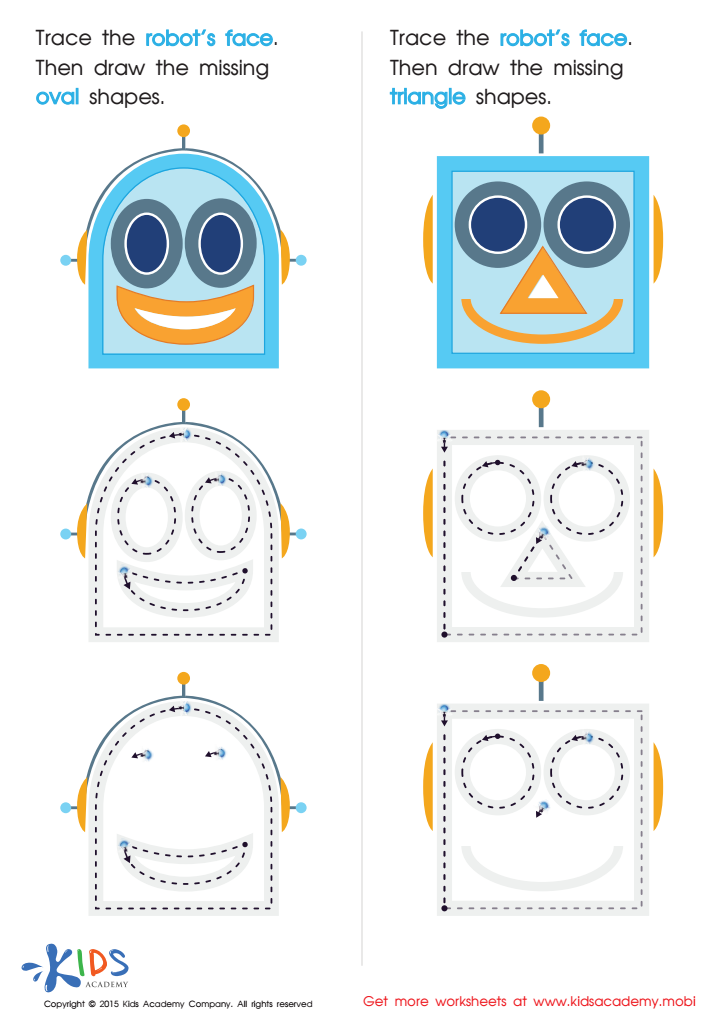

Drawing Ovals And Triangles with Fun Printable
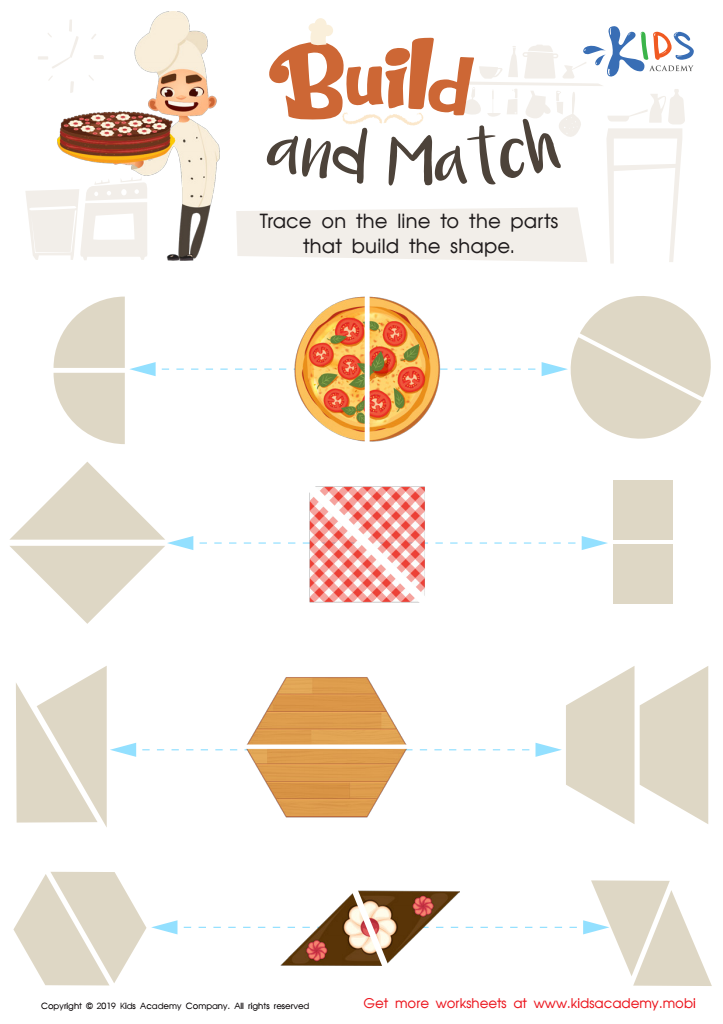

Build and Match Worksheet
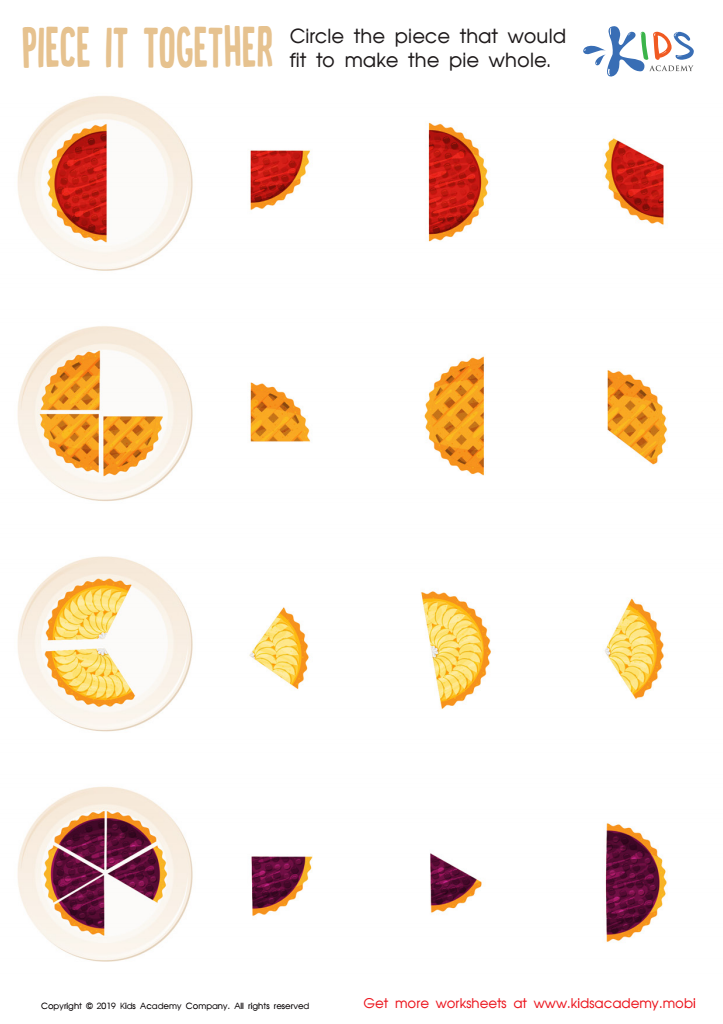

Piece it together Worksheet
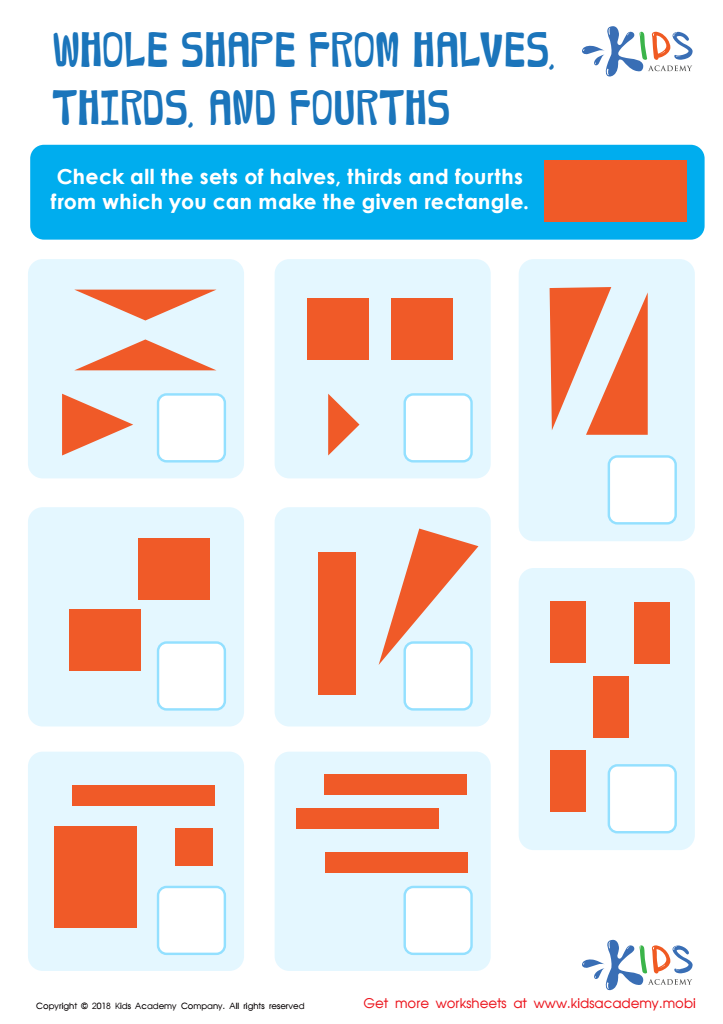

Whole Shape from Halves, Thirds and Fourths Worksheet
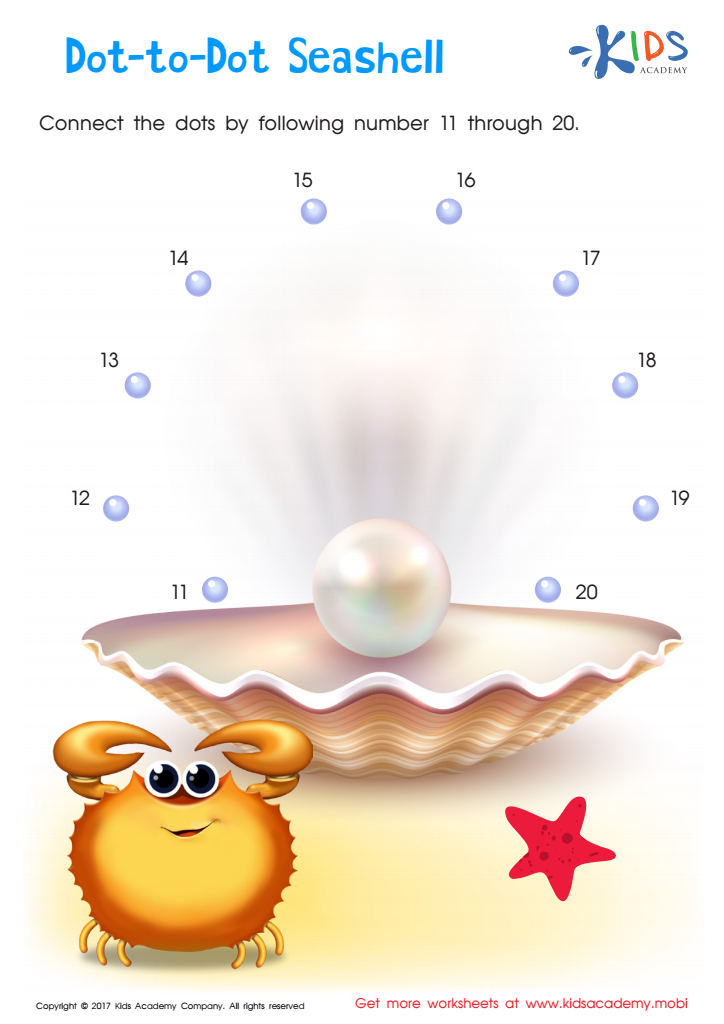

Ordering 11–20: Dot–to–dot Seashell Printable
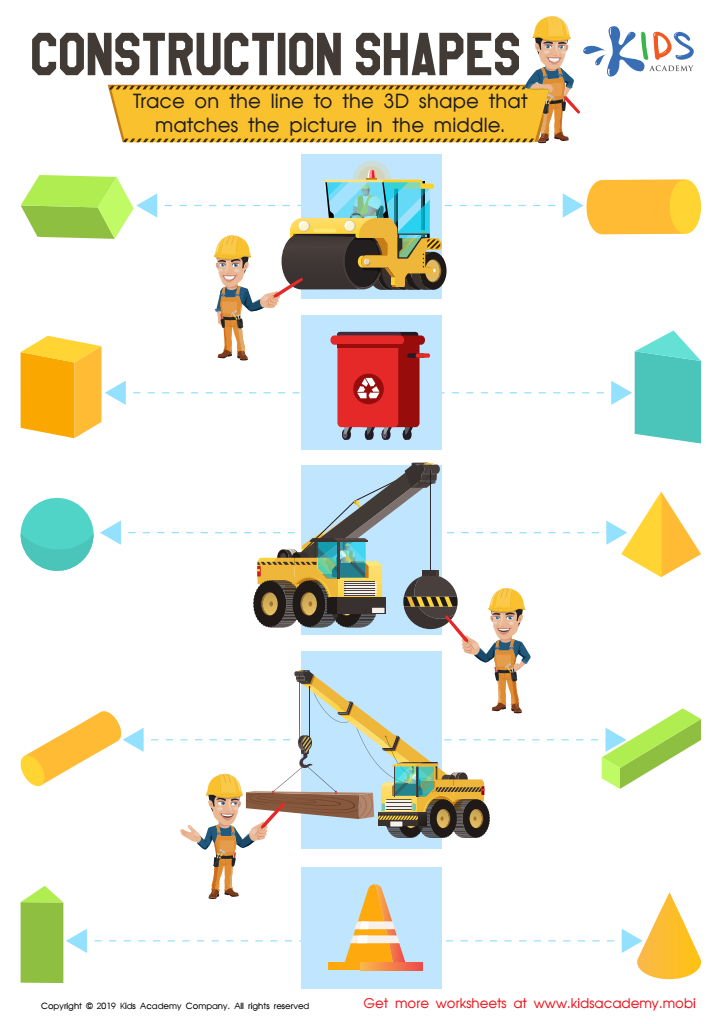

Construction Shapes Worksheet
Shape recognition is a foundational skill in early mathematics that serves as a building block for more complex concepts. For children aged 4-8, developing this skill through engaging activities, such as Shape Recognition Easy Math, is essential.
First, understanding shapes aids in cognitive development. Recognizing, categorizing, and manipulating shapes enhances critical thinking and problem-solving abilities. These skills are vital as children encounter spatial awareness in everyday tasks, such as navigating through environments and distinguishing between different objects.
Moreover, shape recognition is closely tied to the development of early geometry skills, which are central to later math learning. Children who grasp these concepts early on are more likely to succeed as they progress through higher-level math. Additionally, shape recognition contributes to language development; vocabulary such as "circle," "rectangle," and "triangle" broadens a child's ability to express themselves and understand mathematical language.
Lastly, engaging children in fun, interactive shape recognition activities fosters a love for learning, encouraging them to explore and enjoy math instead of viewing it as a chore. By focusing on shape recognition through meaningful activities, parents and teachers can significantly influence a child’s confidence and competence in mathematics, setting the stage for lifelong success.
 Assign to My Students
Assign to My Students





















